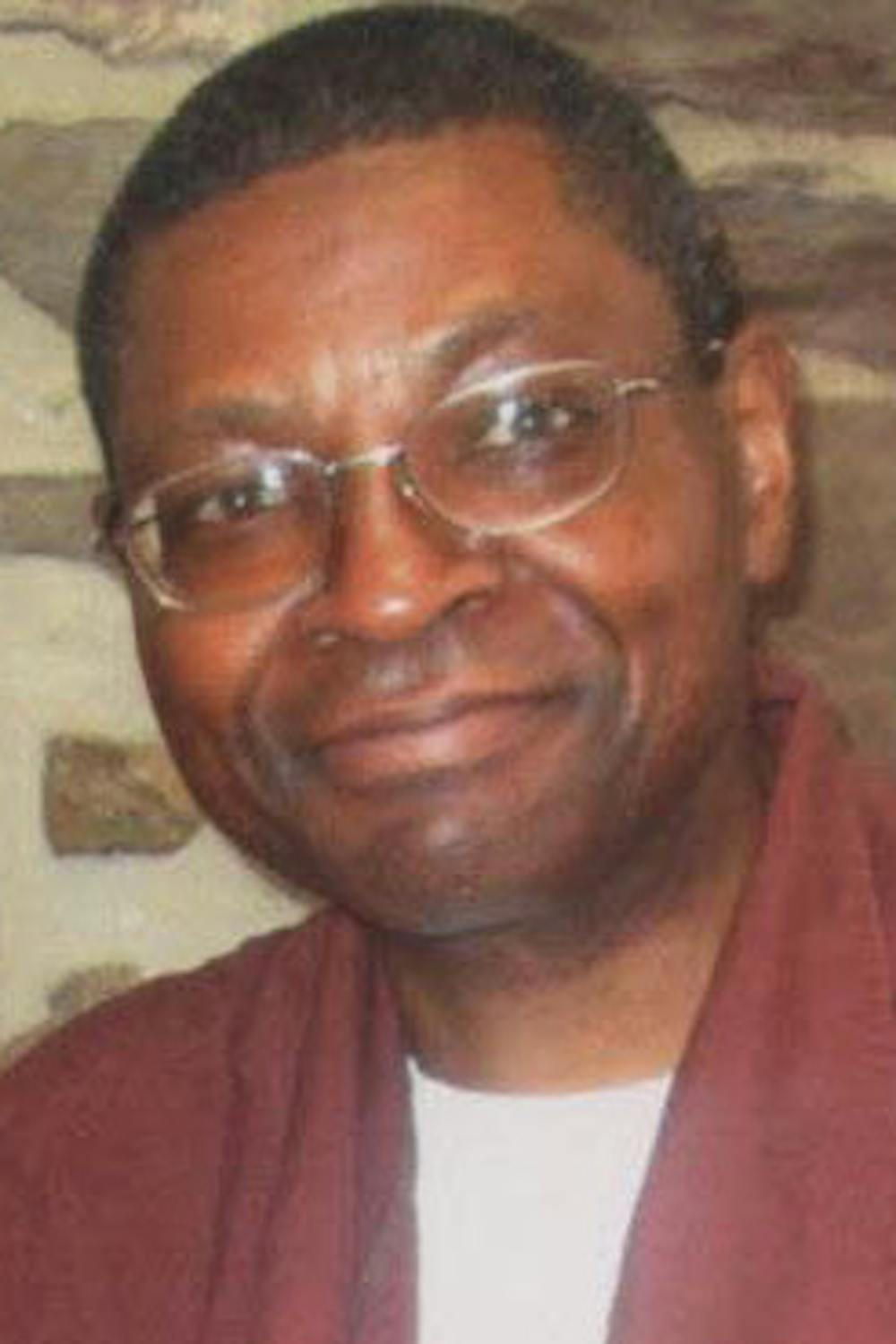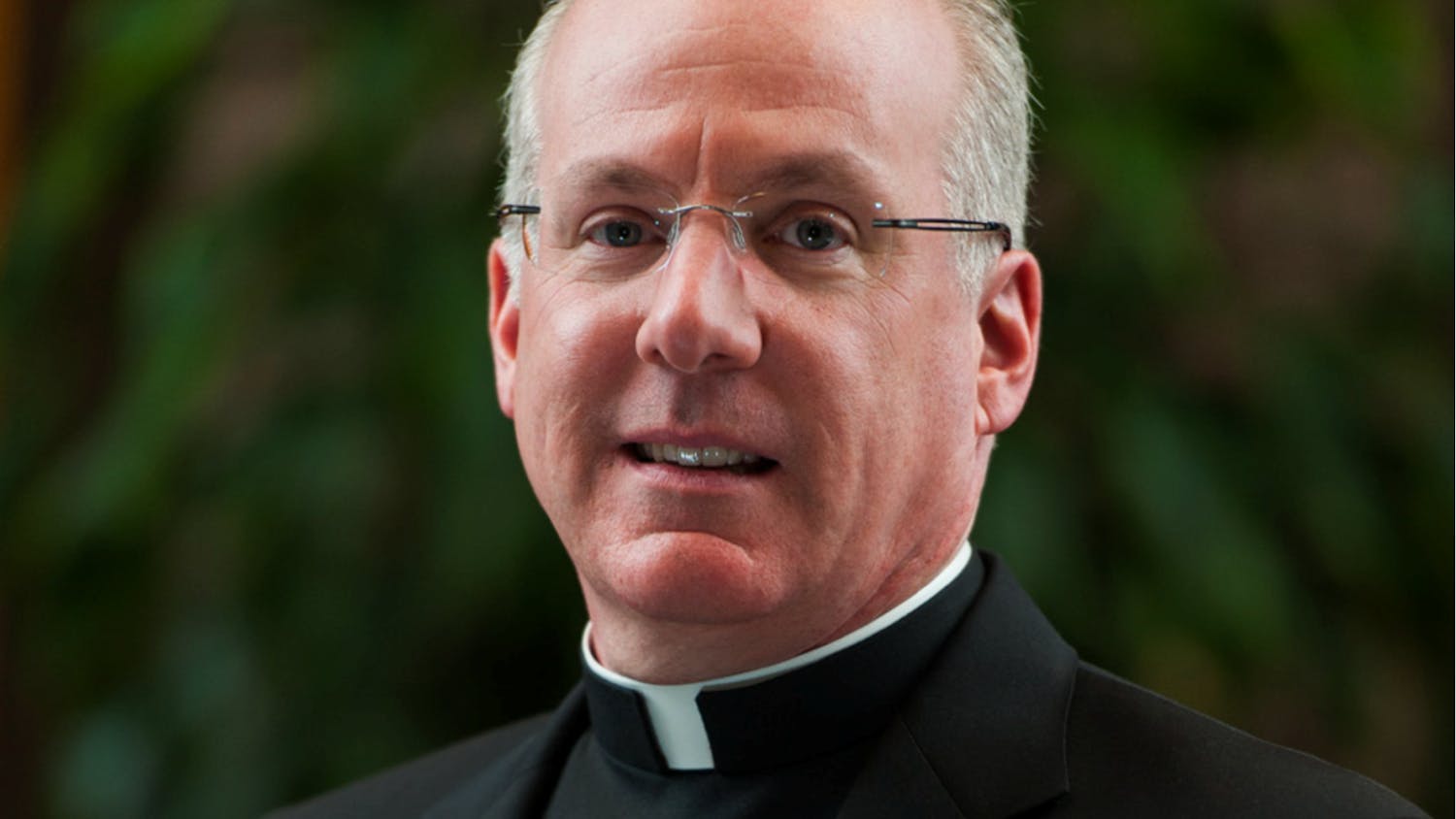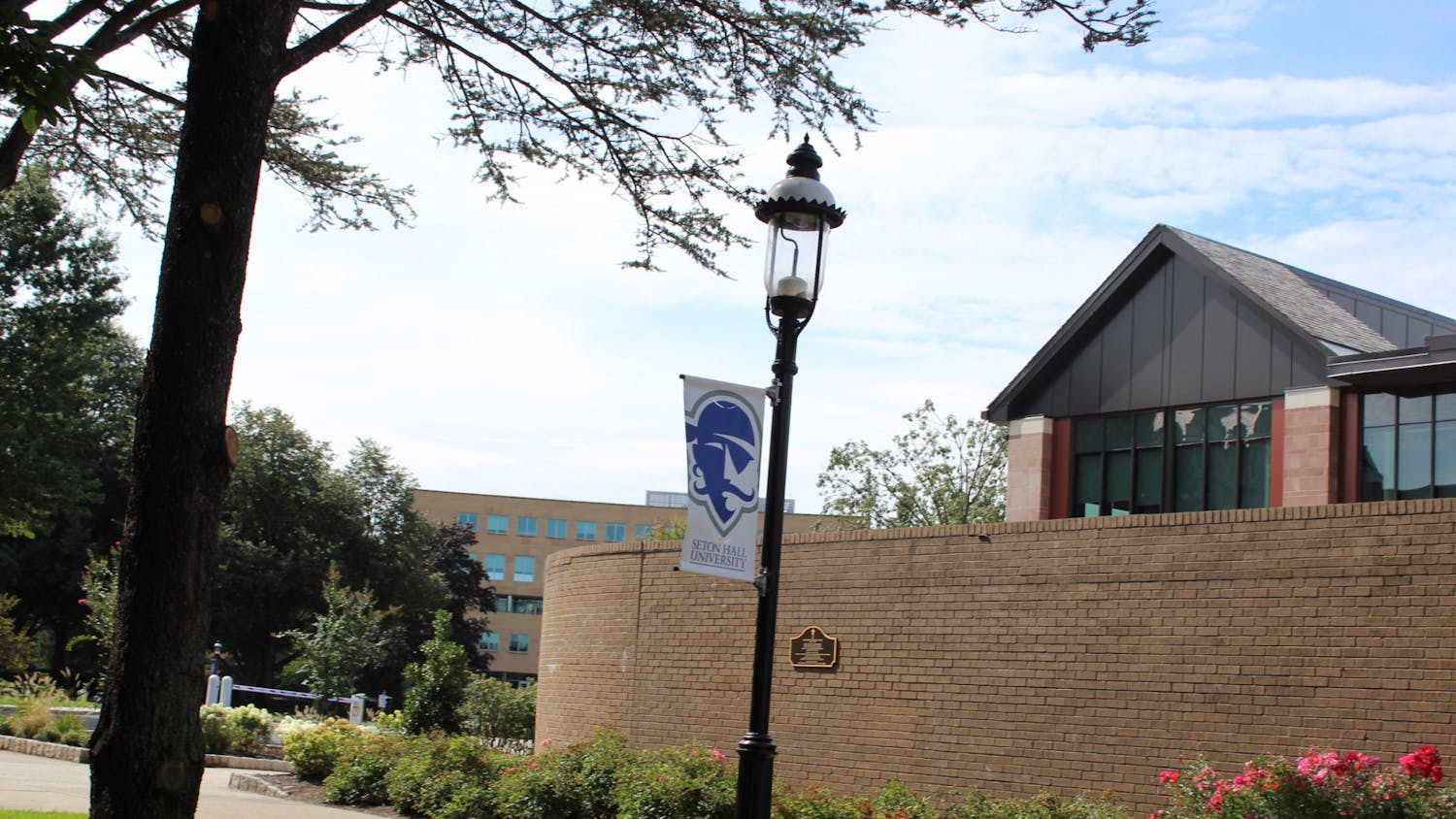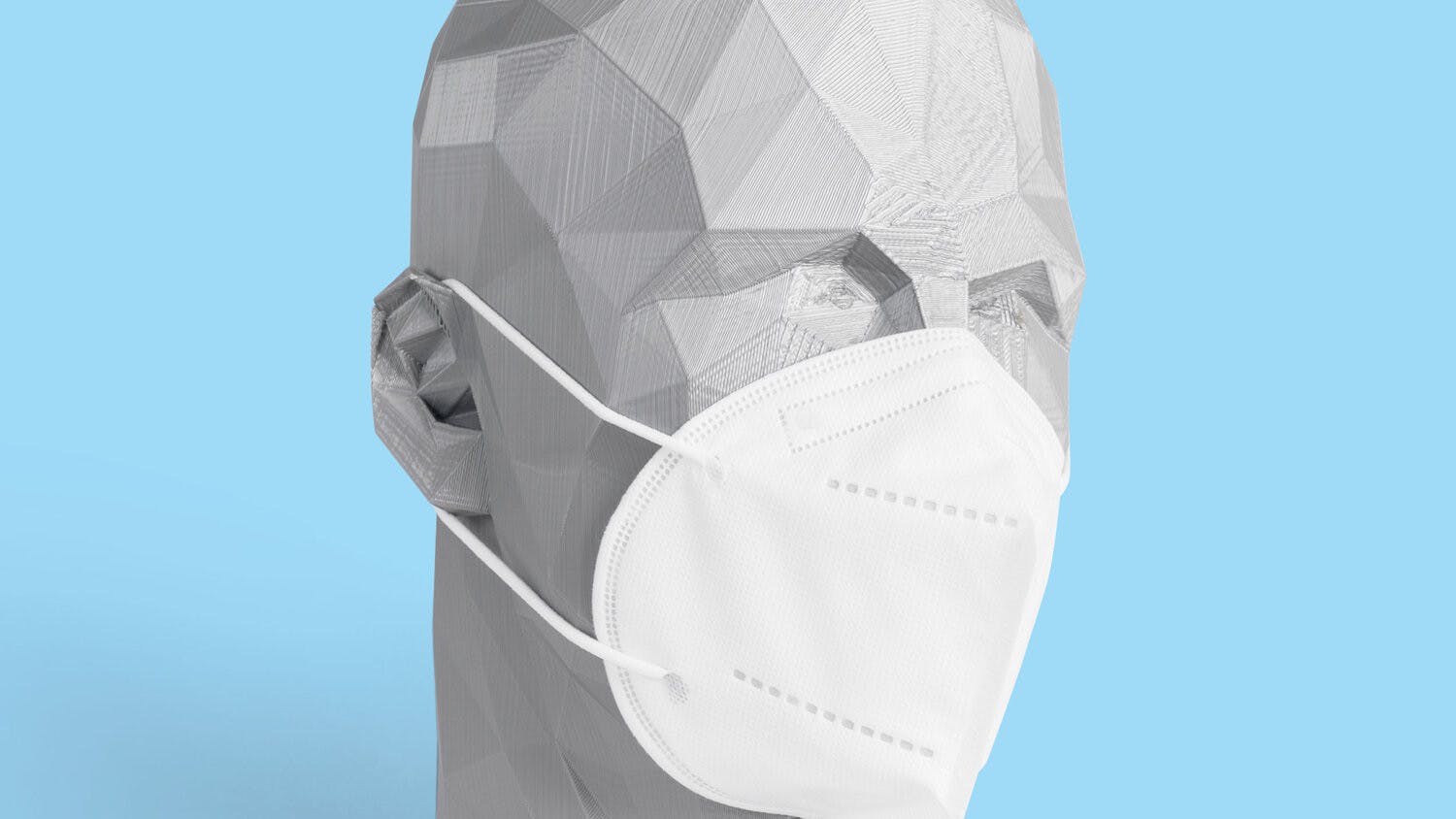Before Josoph Henry raped and murdered Jeanne Clery at Lehigh University three decades ago, he spent a brief time on the Seton Hall campus participating in an academic program as a high school student.

In an exclusive interview with The Setonian, Henry, a Newark native, said he visited the South Orange campus while he was a student at University High School in the 1980s. While no details survive of how much time Henry actually spent at Seton Hall or what he did while he was here, his actions on the campus of Lehigh University 31 years ago this week were laid out in tragic detail in a case that has had a lasting impact on every college campus in America, including Seton Hall.
It was in the early morning hours of April 5, 1986, that Henry, then 20, entered Clery’s Lehigh University dorm room and fatally assaulted the 19-year-old co-ed from Bryn Mawr, Pa. Both were students at the university.
In the aftermath of the tragedy, Clery’s parents and other advocates successfully lobbied for national legislation to make campuses safer by requiring universities to be transparent about sexual assault and other crimes on campus. Since the Clery Act was signed into law in 1990, institutions that receive Title IV federal funds, like Seton Hall, have had to file yearly reports on campus crime.
In a series of phone calls and long handwritten letters from the State Correctional Institution (SCI) at Dallas in Dallas, Pa., 120 miles northwest of Newark, where he is serving a life sentence, Henry reflected on Clery’s murder. Though he did not ask for forgiveness, he said he has tried to atone for his crime by advocating, through letters, for greater awareness about the dangers of alcohol, which he said was a factor in causing his crime. He also has called for restraints on the kind of behavior that can exacerbate problems on college campuses.
Speaking on a prison phone, Henry, now 51, was transparent about his past, and about his hopes for the future. He spoke candidly and without hesitation, even as automated messages intermittently interrupted the 15-minute calls, reminding him that the prison could be listening to and recording his every word.
With eagerness in his voice, as well as in several letters handwritten in his scribbled script, he avowed his willingness to speak about all aspects of his life, including his actions on the day of Clery’s murder.
“I know that people will hate and be suspicious of me because of my crime,” Henry wrote. “But, I cannot change my past. I can only move forward trying to save as many lives as possible.”
A jury found Henry guilty of murder in the first degree, rape, involuntary deviate sexual intercourse, indecent assault, burglary, theft, robbery, and aggravated assault on April 25, 1987, in the Court of Common Pleas of Northampton County. The infamous case is known as Commonwealth of Pennsylvania vs. Josoph Henry.
Henry’s argument that alcohol consumption caused his crime was rejected by the state.
Com v. Henry noted that “the law has developed in Pennsylvania that a defendant cannot, as a matter of law, be insulated from criminal liability for his actions by claiming a mental state resulting from alcohol which was voluntarily ingested. Whether or not appellant was aware that he would suffer from the mental state is irrelevant, the fact that he voluntarily ingested the alcohol being determinative in depriving him of an insanity defense.”
Henry explained the emotions and events leading up to his crime, scene by scene. He said that in 1986, his younger brother Jason had come to visit him during prospective freshmen weekend at Lehigh University. Henry recalled that the weekend was like any other, with a busy schedule of a theatrical play, a basketball game and parties.
It was also a time for drinking alcohol, which Henry said factored into his crime (although the court rejected that argument). Henry explained that his drug of choice at the time would have been marijuana since the drug “did not cause any kind of violent reactions” that he had when consuming alcohol.
One of those violent reactions that weekend was when he broke down a door at a party. Following that outburst, Henry walked onto campus after going for a drive with his friends, an attempt to calm him down.
Henry said he entered a dormitory where a door was propped open. There, he explained, he saw a man sleeping on a couch.
“I had this thought to just hurt this person, this guy just sleeping on the couch. It was the first, really, the violent thought that got everything started, the guy sleeping on the couch,” Henry said.
Henry said he continued to wander around the dormitory and open doors.
“Found an open door. I opened one door, there was a bunch of people sleeping there. I remember that. Opened another door there was Jeanne Clery, who I didn’t know at the time, asleep,” Henry said. “Entered the room and uh” – Henry paused on the phone, processing the events leading up to the murder.
Following his crime, Henry wrote letters to 50 governors and 50 state attorneys general in 2003 addressing the dangers of alcohol consumption. Henry said that he also wrote to the Alcohol, Labeling and Formulation Division in 2005, which is actually the Advertising, Labeling and Formulation Division. The ALFD ensures that formulas, labels, and advertisements for alcohol are in compliance with Federal laws and regulations, according to its website.
In his letter to the ALFD, Henry wrote that he was drunk, emotionally hurt and angry when he committed the “abominable crime.” He added, “If I had known drunkenness could cause me to do what I did, I would not have gotten drunk.”

Henry told The Setonian that he wrote the letters because he wants the perception of alcohol to be changed in the U.S.
“The letters I write trying to sow the seeds of change for the better in individual lives, our country, and our world might be the most important thing the Lord will have done through me when I stand before Him for judgment. The future I focus on is God’s judgment,” Henry wrote.
Since 1986, Henry said he has also worked toward bettering his own life. He has grown in his non-denominational faith.
Henry said that he has been involved in a Protestant youth group and a Bible study. His writings have also been featured on the website Prison Mentoring, which started as answers to questions for The Upper Room, a daily devotional guide.
As a Catholic university with a unique, albeit distant, relationship to this incident, the Seton Hall community is challenged to deal with the issue of forgiveness. The Rev. Brian Needles, an adjunct professor of moral theology at Seton Hall, said in an email interview that the Catholic Church teaches that “no sin, no matter how heinous, is beyond God’s power to forgive.”
Needles added, “I, of course, have not met Josoph Henry and I can’t judge his level of repentance and the depth of his conversion of heart, though it seems from reports that he has striven to atone (expiate) for his sin and to change his heart. Only God knows for sure whether that is the case.”
In a letter that Henry provided to the Adult Sunday School Class (ASSC) at Town Hill United Methodist Church in Shickshinny, Pa., he explained his remorse for how he dealt with the Clery family’s grief.
“What I should’ve told my victim’s family is that my heart is broken due to the evil of my crime, and broken by the pain I caused them,” Henry wrote. “I should’ve pledged my continued prayers for them to experience God’s peace, God’s comfort, and the healing that only God can give.”
Marie Henry, Henry’s mother, still lives in Essex County, N.J., and still carries the weight and the impact of her son’s crime more than 30 years later.
Thinking back to her son’s childhood, Mrs. Henry said in an interview conducted on Seton Hall’s campus, “I thought we had a great family connection. You know? That we did everything together, and that we went places and we would talk to each other and we would have those family times.”
Mrs. Henry keeps in contact with Josoph, driving more than two hours from Orange, N.J. to visit him once a month. She said she travels by herself no matter the weather, even in the snow and the rain. Her daily wake-up call comes in the form of a 15-minute phone conversation with her incarcerated son.
However, Mrs. Henry fears for the future as she gets older, and as her oldest remains in prison.
“I got nobody to take over the torch in case something should happen to me,” Mrs. Henry said. “Who’s gonna go visit? Who’s gonna see? Who’s gonna care?”
Mrs. Henry said that her only other child, Jason, has not visited Henry in more than 20 years. On that last visit, the family had difficulty getting past the prison’s metal detectors.
“His brother said, ‘I just can’t come in, I just can’t do this.’ So he hasn’t been back, hasn’t been in a long time,” Mrs. Henry said.
Even though many years have passed, Mrs. Henry said the tragedy of April 1986 continues to have an impact on her and the way she lives out each day.
“I guess it’s something that’s happened since he’s been in there, I just can’t sleep the night,” Mrs. Henry said. “I just absolutely can’t sleep.”
Mrs. Henry explained that her son grows in his faith by reading Bible passages. She said she does her part to lift his spirits when she speaks with him.
“Always try to give him some good news, not a bunch of bad news, because there’s nothing he can do about it,” Mrs. Henry said. “Even if we’re out here, there’s nothing we can do about it, so there’s absolutely nothing that he can do on the inside except for worry.”
Mrs. Henry, midway through the interview, paused for a moment.
“This is hard for me.”
Reflecting on his crime, Henry said that there is more awareness of perceived sexual assault and harassment today than there was in the 1980s.
“It is national news today, I don’t recall it being a national theme in the 1980s,” Henry wrote. “We didn’t discuss what constitutes consent to sex, sexual assault and sexual harassment, but we also didn’t discuss the real dangers of alcohol, either.”
Since the tragedy, Clery’s parents, Connie and the late Howard Clery, have worked tirelessly to make college campuses safer nationwide with the passage of the law honoring their daughter. The Jeanne Clery Disclosure of Campus Security Policy and Campus Crime Statistics Act was first signed into federal law in 1990. It requires public and private colleges and universities that participate in federal student aid programs to disclose campus safety information.
Administrators and some students may know of the Clery Act and how it requires institutions to report on-campus crimes. The Setonian reported on Oct. 5, 2016, that there were six reported rapes on campus in 2015, according to Seton Hall’s Annual Security Report. The information was released on Oct. 1, 2016, in compliance with the Clery Act.
Seton Hall’s Assistant Vice President for Public Safety and Security, Patrick Linfante, said that he has known Seton Hall to abide by the Clery Act since his arrival to campus in July 2000. He added that the information available to him indicates that the University has always complied with the requirements of the Act.
“This information enables both the student and their parents to make a more informed decision regarding which school to attend,” Linfante said in an email interview.
Because of the Clery Act, students, including prospective ones, are more inclined to be aware of the type of crimes that happen on certain campuses, including sexual assaults.
The Clery Center, set up in Wayne, Pa., by Jeanne’s parents, strives to make college campuses safer through initiatives and programs. One program is an online training course for Clery Act compliance to “prepare staff to identify compliance requirements, evaluate campus policies and procedures, and organize annual security reports,” its website stated.
Bethany Lamolinara, director of Communications and Public Affairs, said the Clery Center, works directly with campus professionals to help them comply with the Clery Act on campuses.
“It’s kind of a ‘give a man a fish, he eats for a day, teach a man to fish, he eats for a lifetime’ kind of philosophy that we believe that by enabling professionals to change the culture, focus on prevention, and make their own campuses safe, we’re impacting and improving the lives of a far greater number of students than if we helped them directly,” Lamolinara said in an email interview.
Lamolinara added that the Clery Center could not connect Connie Clery directly to the press.
Linfante further elaborated on how colleges nationwide can continue to keep their campuses safe for students.
“A proactive approach to public safety leads to the best results. Planning, preparation, training and timely information are essential to providing a safe environment on college and university campuses,” he said.
Leah Carton can be reached at leah.carton@student.shu.edu.





